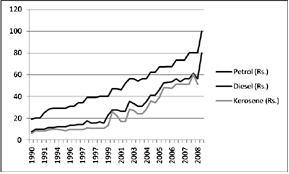What a nice sentence:
Women may be uneducated but apparently they are not ignorant.
Short and sweet sentence that speaks volumes against the argument that state provision of reservation/allocation of a certain percentage of seats, be it in the parliament or jobs in government agencies, to women is not good in terms of potentiality and efficacy. True in an ideal, perfect job market but not in a semi-market where there is a nexus or series of male dominance in almost all level and structure of political, economic, and social sphere. If we acknowledge that women empowerment has positive effect on the major indicators of development, then we should not hesitate to make decisions considering history, where women were never allowed to rise above the social ladder, irrespective of their qualifications, and were always kept under male dominance.
The trend of male dominance should be broken and it has to be done in such a way that women are given equal footing right from the beginning of reform process. This might also mean that incompetent women may land in positions they are not supposed to be if we consider merit. However market unfriendly it might seem, we have to realize that imperfect markets should not flourish on top of deep social discrimination against women.
If reforms related to representation, which should have a clear cut sunset clause, can temporarily overstep the logic of merit in the job market, and in the long run could lead to a more optimal solution than the existing sub-optimal one, then it is perfectly rational to implement that reform. Read my commentary on the economics of reservation published in January 2008 here (alternative like here). I support temporary reservation of government jobs and parliament seats to the marginalized groups, including women. The government of Nepal had recently made a provision to allocate 33 percent of jobs in government agencies and in the parliament for these marginalized groups.
Here is a nice article about mainstreaming women.
...The CA holds approximately 33 percent women. Though it fails to fulfill righteous 50 percent—women consist of half of the population—it is still the giant stride from previous six percent women in the last elected parliament. Increasing number of women in politics is an encouraging sign but the question of their potentiality remains crucial, their voices might vanish into the shrill voices of males.
...When the women like tailors, domestic help were nominated as CA members, the media started publishing nonsense. They swept the ethic by blatantly portraying women as banal. News came with loathsome tendency: CA member while sewing cloths, or while washing others utensil. The intention behind this news was, look what has become of our country? Those low profile women have risen. What would those uneducated morons do?
We cannot or must not undermine efficacy of women saying they are uneducated. Of course, they do not know many things but they can raise a voice for grass root level. They will give points that can be coded as law by the expert CA members. Women may be uneducated but apparently they are not ignorant.
